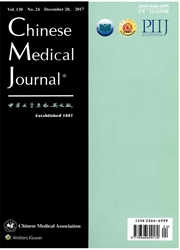

 中文摘要:
中文摘要:
在高血压的脉管的墙中的长期的病理学的变化可以施加的背景多重机关 systems.Accumulating 证据上的破坏效果显示煽动性的反应涉及 hypertension.Three peroxisome 的病理学的变化 激活proliferator 的受体( PPAR )被识别了: PPAR ,PPAR/,和 PPAR ,所有哪个有多重生物效果,特别这研究的 inflammation.The 目的抑制是评估 PPAR isoforms 表示侧面在里面
 英文摘要:
英文摘要:
Background The chronic pathological changes in vascular walls of hypertension may exert destructive effects on multiple organ systems. Accumulating evidence indicates that inflammatory reactions are involved in the pathological changes of hypertension. Three peroxisome proliferator-activated receptors (PPARs) have been identified: PPARa, PPARβ/δ, and PPARγ, all of which have multiple biological effects, especially the inhibition of inflammation. The aim of this study was to evaluate PPAR isoforms expression profile in important organs of spontaneously hypertensive rats (SHR) and to understand the modulation of endogenous PPAR isoforms under inflammatory condition. Methods l]ssues (kidney, liver, heart, and brain) were dissected from SHR and age-matched control Wistar-Kyoto rats (WKY) to investigate the abundance of PPAR isoforms and PPAR-responsive genes (acyI-CoA oxidase and CD36). The expression of CCAAT/enhancer-binding protein 6 (C/EBP6), which can trans-activate PPARγ expression, was also observed. The inflammatory response was analyzed by the expression of inflammatory mediators inducible nitric oxide synthase (iNOS), intercellular adhesion molecule-1 (ICAM-1), vascular cell adhesion molecule-1 (VCAM-1), E-selectin, interleukin-1 beta (IL-1β), and tumor necrosis factor alpha (TNFα), and formation of carbonyl and nitrated proteins. Results The expressions of 3 PPAR isoforms and PPAR-responsive genes were markedly upregulated in SHR compared with those of WKY. Specifically, the expression of PPARa protein in the kidney, liver, heart and brain increased by 130.76 %, 91.48%, 306.24%, and 90.70%; PPARβ/δ upregulated by 109.34%, 161.98%, 137.04%, and 131.66%; PPARγ increased by 393.76%, 193.17%, 559.29%, and 591.18%. In consistent with the changes in PPARy, the expression of C/EBPδ was also dramatically elevated in SHR. Inflammatory mediators expressions were significantly increased in the most organs of SHR than WKY. As a consequence, increased formation of
 同期刊论文项目
同期刊论文项目
 同项目期刊论文
同项目期刊论文
 期刊信息
期刊信息
